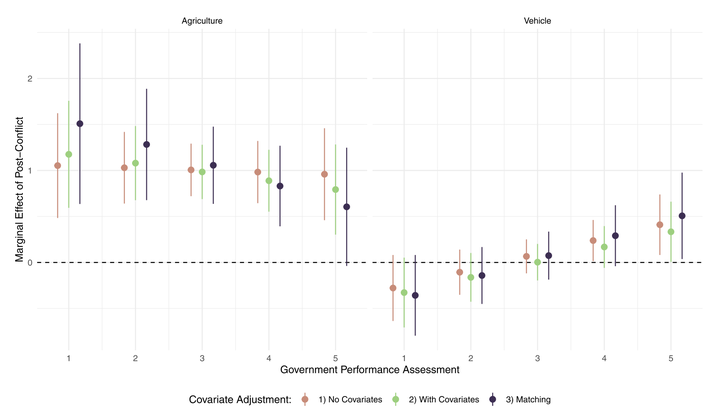
Abstract
A substantial literature in political science suggests that individuals’ policy preferences can be shaped by the actions of elite actors and the policies they emphasize and implement. Yet can these actions and interactions have second order effects and actually affect individuals’ beliefs about the causes of the problems that policy seeks to address in the first place? This research note identifies the effect of policy conflict upon individuals’ beliefs about the societal problems, using original survey data from New Delhi. This effect is estimated by comparing beliefs about the causes of air pollution just before and after an unexpected policy conflict between the government and a judicial body over policy to limit vehicle usage. The results find that the policy conflict caused mass beliefs about the causes of pollution to change. In line with the theory of inferred justification, belief updating led individuals who generally approve (disapprove) of the government to believe vehicle usage was more (less) responsible for air pollution respectively. This is in spite of the fact that the spike in air pollution was caused by agricultural burning. The results suggest that policy conflict between political elites can not only affect mass policy preferences, but also alter beliefs about the cause of such societal problems policy seeks to address.